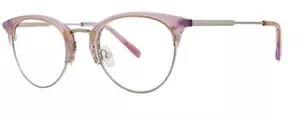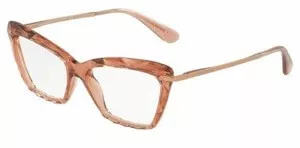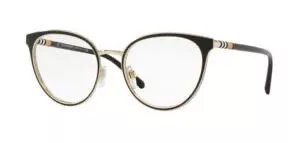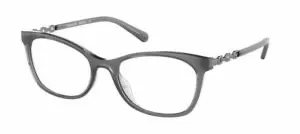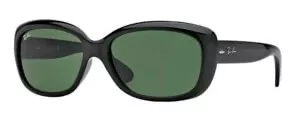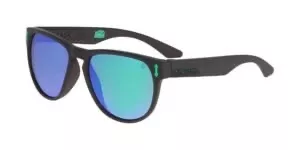The lens of the eye should be transparent, but sometimes it becomes clouded over. When this occurs, it’s known as a cataract. Most cataracts take years to develop, so they usually aren’t detected until later in life. The first indicator that you may have cataracts is blurred vision, often described as looking through a tinted or frosted window.
There are three types of cataracts, all with similar effects. Nuclear Sclerotic Cataracts, the most common type of cataract, are caused by a clouding of the eye lens, but only in the nucleus. Cortical cataracts are caused by cloudy white wedge shapes that begin at the outer eye and slowly progress toward the center. A posterior subcapsular cataract starts small but develops near the back of the lens in the direct path of incoming light.
Do I Have Cataracts?
If you think you have cataracts or any other vision problems, talk to your eye doctor as soon as possible. Here are a few symptoms of cataracts to look out for, and if you experience any of them, speak to your eye care professional about them at your next appointment.
Clouded Vision
Cataracts are when the eye’s lens clouds over, which is why this symptom makes cataracts pretty identifiable. Clouded vision is also sometimes referred to as blurred or dimming vision. Unlike other vision problems, cataracts typically progress far more in one eye than the other. Because of this, one eye may eventually become nearly sightless, while the other remains almost perfectly functional.

Poor Night Vision
Cataracts distort the amount of light that comes into your eye, making it harder for them to adjust in the dark. Because of this, many people report a drastic decrease in night vision. Patients with cataracts have also described seeing halos around light sources, which worsen at night. The inability of your eye to focus also causes worsening distance vision.
Frequent Prescription Changes
Contacts and glasses are rarely prescribed for cataracts, and when they are, it is usually for UV-ray protection. Most people that don’t know they have cataracts are diagnosed with other vision problems or eye diseases that glasses or contacts would help. Prescription eyewear may seem to help initially but needs to be changed frequently due to improper or outdated prescriptions.
None of these symptoms guarantee you have cataracts, but if you believe that you might, contact your eye care provider to set up a comprehensive eye exam as soon as possible. Be aware that the following people have an increased risk of cataracts:
- Anyone who is elderly
- Those with diabetes
- Those who smoke
- Those who are obese
- Those with high blood pressure
- Anyone with previous eye surgeries
- People with known eye injuries
If you fit any of these categories, be mindful of the risk factors and consult your designated eye care specialist if you notice changes in your vision.

How Can I Fix My Cataracts?
There are a few ways to attempt reversing cataracts, but only eye surgery is a definitive solution. Also, it might require multiple cataract surgeries to fix the lens of your eye completely. Extensive eye surgery is the most common solution to cataracts. It works by removing the natural lens and replacing it with an artificial intraocular lens.
Monofocal Intra-Ocular Lenses (IOL)
There are other types of lens implants for cataracts, but monofocal IOL are the most common. The eye care provider will often prescribe contact lenses or glasses that are designed to block out any harmful UV-rays after the surgery. Not everybody can undergo surgery, however, so here are some other options.
Eye Drops
Some scientists claim to have discovered a compound that works for undoing the progression of cataracts. This compound is still being studied, though, and is somewhat experimental. They are available in the United States as a dietary supplement, but the FDA does not recognize them as a valid solution to cataracts.
Contacts and Glasses
Contact lenses and glasses cannot treat or cure cataracts. They can, however, be prescribed by an eye care specialist to help block out harmful UV-rays. So, where can you get lenses to protect against UV-rays?WebEyeCare has a wide variety of contact lenses and glasses to choose from.
TheWebEyeCare Promise
WebEyeCare is committed to caring for you and your eye health. We offer every kind of eyeglasses, contact lenses, or sunglasses so that you can care for your vision in style. We offer frames from brands likeVera Wang,Giorgio Armani, and contact brands likeAcuvue andAirOptix. You can even take ouronline contacts vision test for $34.99 and ouronline glasses vision test for $39.99.
Our wide range of glasses and contacts covers more issues than just cataracts. Visit our website to learn more about these fantastic brands:
Eyeglasses:
Vera Wang...and more!
Contacts:
Sunglasses:
...and more!
Take your first steps towards perfect eye health now by visiting WebEyeCare. We look forward to doing business with you.
 Save yourself from getting into rush hours and buy your contacts online.
Save yourself from getting into rush hours and buy your contacts online.







